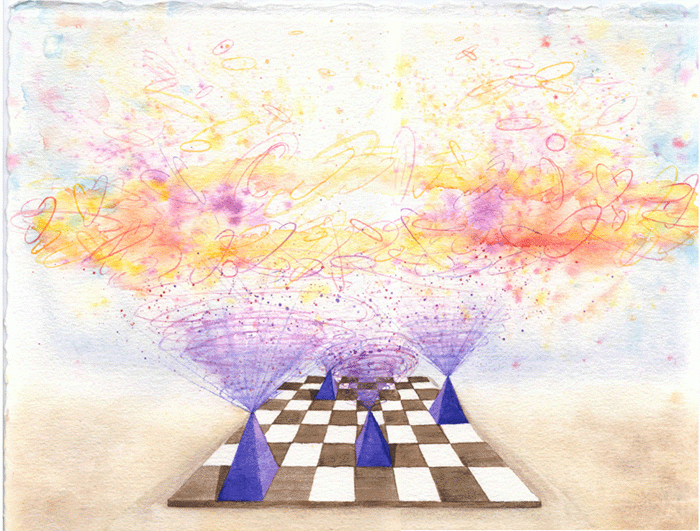November 10, 2017 - 13:09


This summer, sitting in a peaceful place (the back porch on my farm in Virginia, at the edge of my husband’s apple orchard), he and Ann “challenged” me to read War and Peace. I don’t remember why.
In the three months since then, I’ve been listening to Tolstoy’s novel on Audible. I’m not sure that I would have kept @ it if I were reading in the traditional way, but listening while driving (I drive a lot, from Philly to Virginia and back again), I’ve found myself caught up in the drama of early 19th century drawing rooms and battlefields, in the shifts back and forth between them, the ways in which the characters shift between worlds inside and out, and the ways in which those worlds intersect with one another, each altering the shape of the other.
I have found myself intensely engaged, in other words, in what seems to be a preview of the way in which Serendip thinks. Nearly 150 years before Paul, Ann and Deepak designed a website to encourage exploratory, serendipitous ways of thinking and writing, Tolstoy wrote a HUGE book (2000 pp. in my two-volume Penguin Classics edition) in demonstration of what Brian Denton calls the “multivariate causes of history”: “Tolstoy….sees history….as…a spontaneously emergent, bottom-up phenomenon.…historical events emerge ‘moment by moment, step by step, event by event — from an endless number of most diverse circumstances' and can only be seen in their entirety once they are accomplished and belong to the past.”
But let Tolstoy explain this process himself (and note how he brings it all back to an apple orchard, where my own re-immersion in this world began):
“On the twelfth of June, 1812, the forces of Western Europe crossed the Russian frontier and war began, that is, an event took place opposed to human reason and to human nature.…What produced this extraordinary occurrence? What were its causes?...
To us…who…can regard the event with unclouded common sense, an incalculable number of causes present themselves. The deeper we delve in search of these causes the more of them we find; and each separate cause or whole series of causes appears to us equally valid in itself and equally false by its insignificance compared to the magnitude of the events, and by its impotence--apart from the cooperation of all the other coincident causes--to occasion the event….
…in order that the will of Napoleon and Alexander (on whom the event seemed to depend) should be carried out, the concurrence of innumerable circumstances was needed without any one of which the event could not have taken place.
…. When an apple has ripened and falls, why does it fall? Because of its attraction to the earth, because its stalk withers, because it is dried by the sun, because it grows heavier, because the wind shakes it, or because the boy standing below wants to eat it?
Nothing is the cause. All this is only the coincidence of conditions in which all vital organic and elemental events occur.”
